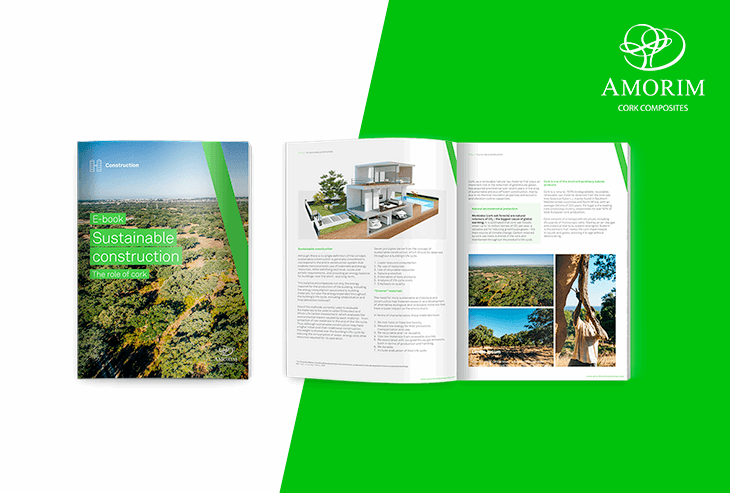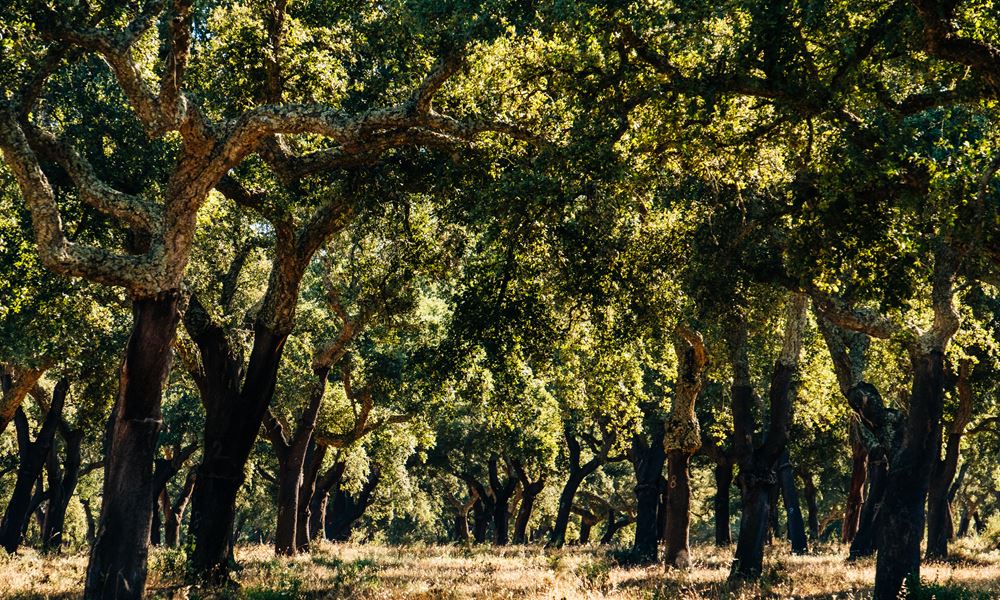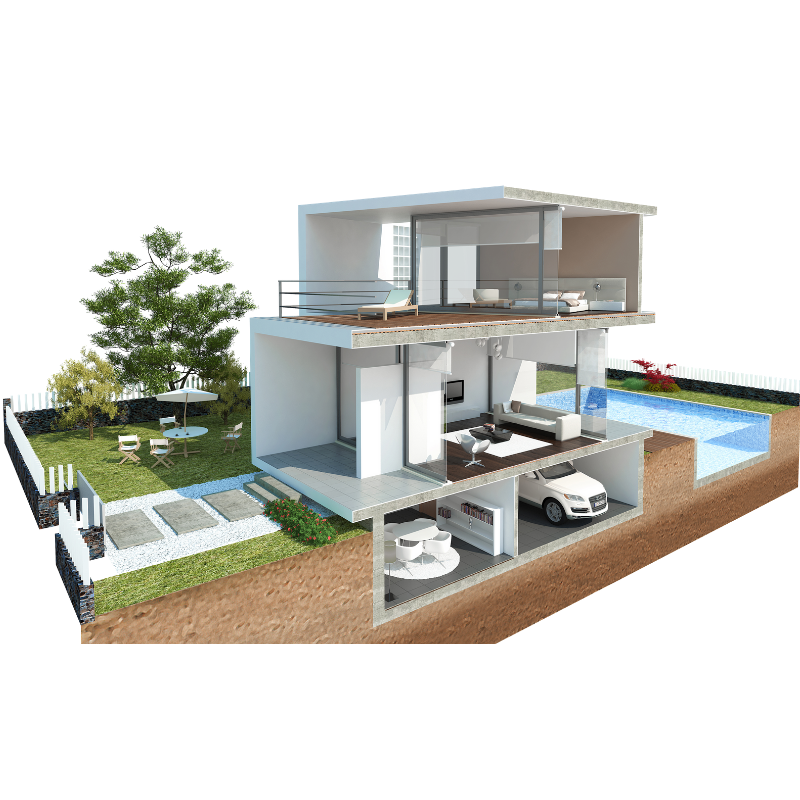The construction industry increasingly requires alternative ecological and renewable materials that deliver a lower environmental impact. Cork is one of the main materials that have been gaining prominence in the area of sustainable and eco-efficient construction.
Demographic evolution and urban development have driven rapid growth of built-up areas, thereby contributing to higher resource and energy consumption and increasing the emission of pollutant gases with repercussions on the atmosphere and eco-systems. Construction is now responsible for the consumption of about 30% of total natural resources used.
The search for more sustainable materials and solutions plays a key role in protecting the environment, given that, according to the UN, about 55% of the world population currently lives in cities and, according to data from the European Commission, people spend about 85-90% of their lives in buildings - between home, work and leisure time.
-
What is sustainable construction?
Sustainable construction corresponds to the entire construction system that enables more economic use of materials and energy resources, while satisfying technical, social and artistic requirements, and providing an energy balance for buildings over the short and long-term.
One of the core principles of sustainable construction is lower resource consumption, both through re-use of materials and selection of alternative ecological and renewable materials that have a lower impact on the planet.
Construction
Sustainable construction
How can we make the construction industry more sustainable? Cork presents a series of other characteristics that make it a raw material that offers a broad field of applications in building construction and rehabilitation.
Seven principles derive from the concept of sustainable construction, that should be observed throughout a building’s life cycle
-
Lower resource consumption
-
Re-use of resources
-
Use of recyclable resources
-
Nature protection
-
Elimination of toxic products
-
Analysis of life cycle costs
-
Emphasis on quality
Montados (cork oak forests) are natural retainers of CO2 - the biggest cause of global warming. It is estimated that cork oak forests retain up to 14 million tonnes of CO2 per year, a valuable aid for reducing greenhouse gases - the main source of climate change. Carbon retained by cork oak trees is stored in the cork and is maintained throughout the product’s life.
Montados (cork oak forests) are natural retainers of CO2 - the biggest cause of global warming. It is estimated that cork oak forests retain up to 14 million tonnes of CO2 per year, a valuable aid for reducing greenhouse gases - the main source of climate change. Carbon retained by cork oak trees is stored in the cork and is maintained throughout the product’s life.
Cork: natural, versatile and sustainable
Cork is a natural, recyclable, renewable raw material that plays an important role in the reduction of greenhouse gases. Over recent years, it has been gaining prominence in the area of sustainable and eco-efficient construction, mainly due to its thermal insulation, and acoustic and vibration isolation properties.
In addition to its insulation capacity, cork presents a series of other characteristics that make it a raw material that offers a broad field of applications in building construction and rehabilitation.
It is a waterproof, lightweight material with high flexibility and compressibility, resistant to moisture, friction, and abrasion. Using cork improves the quality of buildings, indoor air, and comfort.
-
Commitment to innovation and development
Aware of cork’s potential, Amorim Cork Composites has made a major investment in innovation and development and is often presented as a case study in the field of sustainable construction.
Amorim Cork Composites solutions are so comprehensive that it is possible to include them in almost all stages of building construction and rehabilitation, ranging from waterproofing and anti-vibration control to infrastructures, foundations and subfloors, acoustic and thermal insulation and final covering of floors, walls and interior ceilings, façades and roof coverings, including modern and distinct visuals.
Recognised quality
Over recent decades, Amorim Cork Composites has made a major investment in innovation and is often presented as a case study in the field of sustainable construction.
By virtue of this investment the company has received several awards, such as the Gold Level Sustainability Seal, awarded in 2012 by the Platform for Sustainable Construction; the inclusion of the expanded cork agglomerate in the BuildingGreen Top-10 Products for 2013, the largest North American directory of sustainable building products; or the A + classification for the AcoustiCORK® subfloor) in an evaluation made by the Environmental Product Declaration (EPD).
Would you like to know more about Acoustic Isolation and Vibration Control?
Would you like to know more about this subject?
Let us know your details and we'll get back to you.



